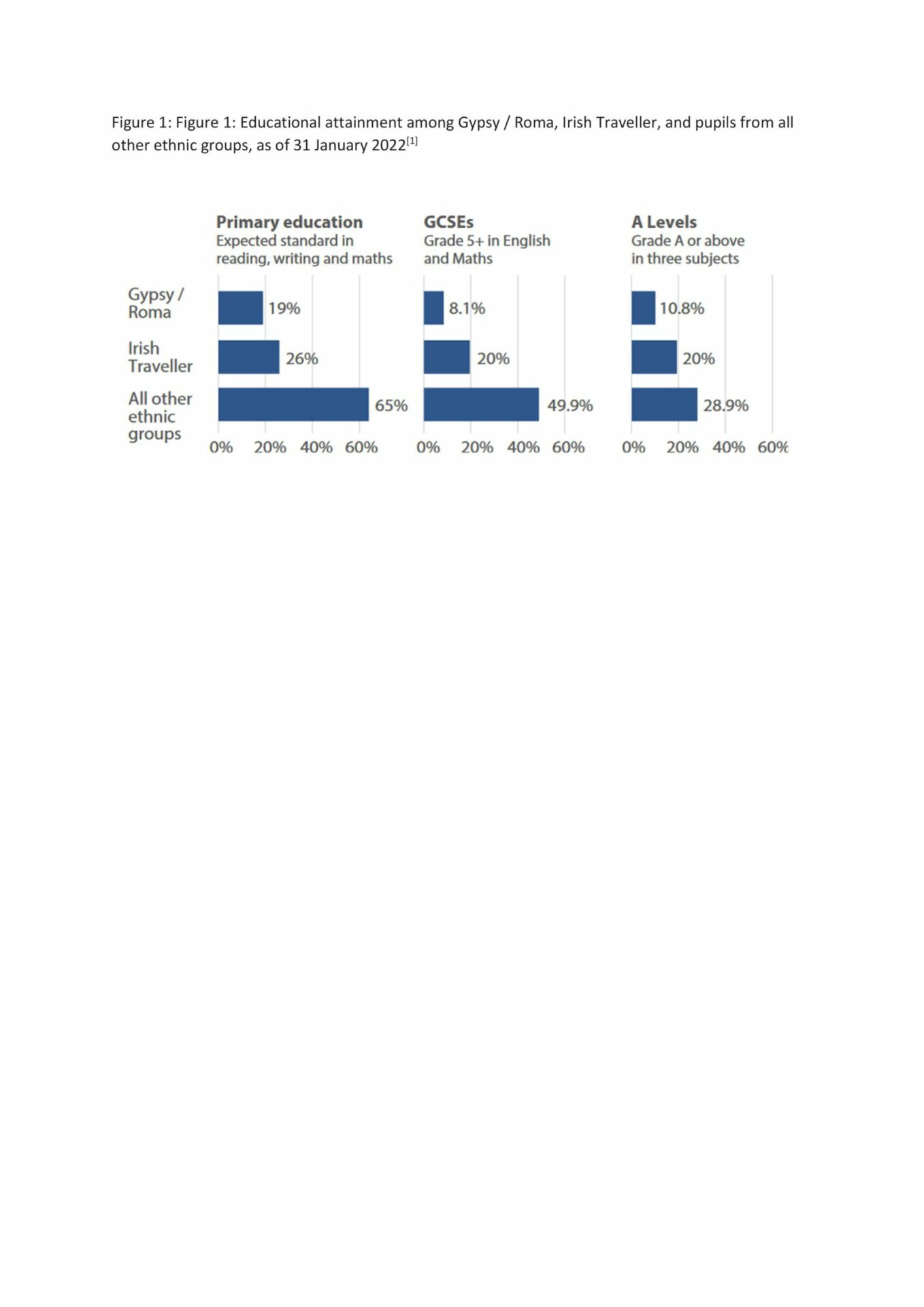The impact of outreach isn’t measured just in footfall or statistical analysis of questionnaires. The qualitative aspects are key, as highlighted in this case study. Science Travels led by Marie Bowers, a Romany woman, and Technician in Physiology Teaching at University of Glasgow (UoG) aims to use physiology to engage with Gypsy, Traveller, Roma, Showman, and Boater (GTRSB) schoolchildren with STEM and education. GRT communities are some of the most marginalised minorities in the UK and have the worst educational outcomes of any ethnic group. In England in 2020/21, 9.1% of Gypsy/Roma and 21.1% of Travellers of Irish decent achieved grade 5 or above in English and Maths. The national average was 51.9%. [1]. Showman and Boaters are not protected ethnicities and no data is specifically collected about them.
UoG Honours project students and academic staff were recruited, with Marie leading a hard-hitting cultural awareness session: ‘The presentation made me more aware of how serious some of the issues facing GTRSB students in the education system are…’ [2]
Culturally appropriate outreach activities were designed and delivered ‘live from the lab in Glasgow’ to our first partner school in Wiltshire: ‘It was lovely to see the undergraduate’s passion for their subjects and their ability to pass on their knowledge to a much younger audience. All three students are a real credit to the university.’ [3]
Blogs based on the experiences brought support from Widening Participation (WP) and the Equality and Diversity Unit (EDU) at UoG via funding for a GTRSB summer studentship: ‘I learned new things and was able to earn some money before starting my BTec in Sports Science. It was fun.’ [4]. This was developed further by a GRT student into a Lt (AD Instruments) biosensors lesson on the effects of physical activity on heartrate for primary school children.
Science Travels received an email from a Roma Marine Biology student at the University of Hull: ‘I was so happy to see another Roma person in STEM as I felt so alone with such imposter syndrome…. I loved reading [your blog] and it is inspiring.’ [5] This student developed a ‘Hook-A-Marine Animal’ game via a further GTRSB summer studentship that then was turned into a real-life game for young children as part of community -designed activities at a GTRSB event held at the public opening event for the UoG Mazumdar-Shaw Advanced Research Centre. Science Travels is now embedded in Honours project options and contributes to Science Communication sessions with L3 UoG Life Science students.
Finally, in terms of policy engagement Science Travels was included as a case in the ‘Report on the Contribution of Physiology Education and Training to the UK Economy’ launch at Westminster and ‘Physiology in Scotland: Achieving the Sustainable Development Goals’ at Holyrood and was mentioned by an MSP in a debate on women in science in the Scottish Parliament. These experiences indicate that when assessing impact of physiology in outreach, the qualitative as well as the quantitative outputs should be included.

